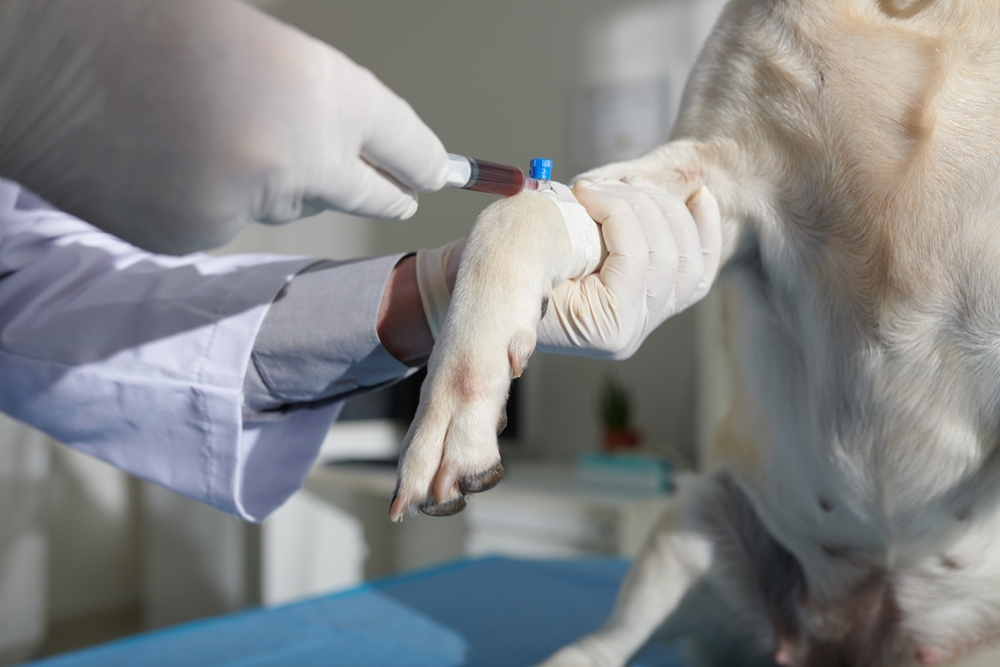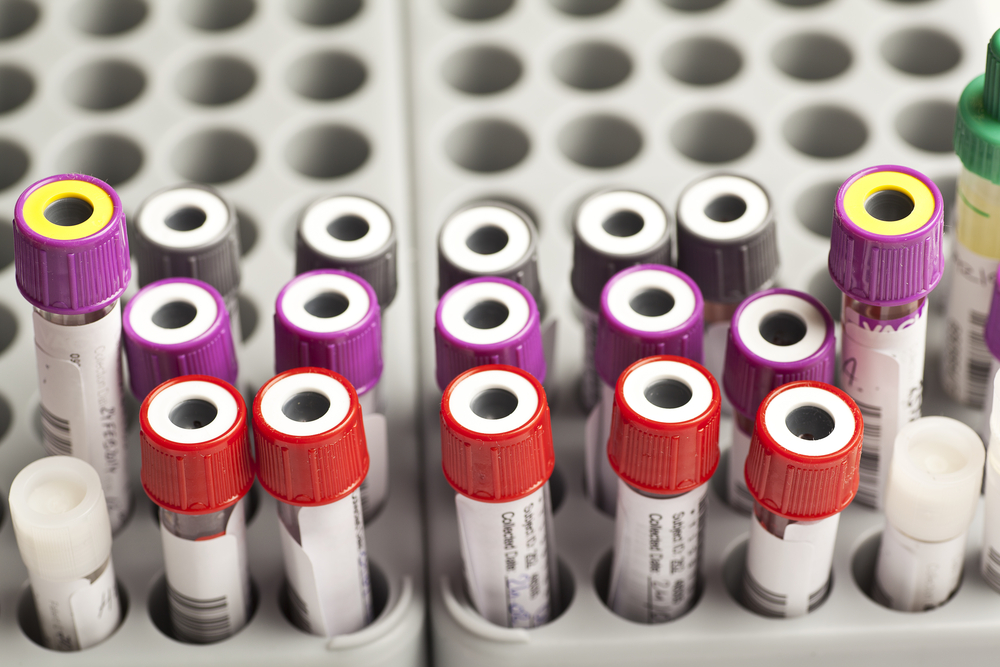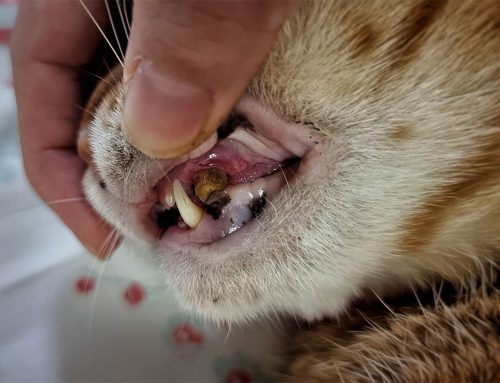Wellness from the Inside Out: Why Annual Blood Panels Matter
At Caldwell Animal Hospital in Lenoir, North Carolina, pets are family. Whether they’re sprinting across the yard, exploring the world with curiosity, or curled up in a favorite chair, they depend on us to protect their health. One of the most powerful tools for doing that is routine blood work as part of an annual wellness exam.
A physical exam is essential, but it only tells part of the story. Many diseases develop silently inside the body long before a pet shows obvious symptoms. Annual blood panels give us a window into what’s happening beneath the surface, catching health issues earlier, guiding treatment, and helping us keep your pet feeling their best for as long as possible.
Why Annual Exams Matter
Annual exams are the foundation of preventive care. Even if your pet seems perfectly healthy, yearly visits allow veterinarians to:
- Perform a nose-to-tail physical exam, including weight, coat, dental, and musculoskeletal evaluation
- Review changes in diet, behavior, or lifestyle that may affect health
- Discuss parasite prevention, nutrition, and activity levels
- Collect blood for baseline or follow-up screening
Some conditions are only visible to the trained eye- like subtle changes in muscle mass, heart sounds, or dental disease. Others, such as diabetes or kidney disease, don’t show up externally until they are well-advanced. That’s where blood work becomes invaluable.
What’s Included in a Wellness Blood Panel?
A typical wellness panel is designed to evaluate how the body’s major systems are functioning. These panels look simple on paper, but each result tells an important part of your pet’s story.
Complete Blood Count (CBC)
The CBC measures red blood cells, white blood cells, and platelets. It helps us detect:
- Anemia – Low red blood cells may signal blood loss, chronic disease, or even hidden internal parasites.
- Infections or inflammation – Abnormal white blood cell counts can indicate bacterial infections, immune system issues, or even certain cancers.
- Bleeding disorders – Low platelets may explain nosebleeds, bruising, or delayed clotting after small cuts.
Chemistry Panel
This group of tests evaluates the function of major organs and the body’s metabolism:
- Kidney values (BUN, creatinine, SDMA) – Small increases can signal early chronic kidney disease in cats or early renal insufficiency in dogs. Catching it early allows diet and hydration changes to help slow progression.
- Liver enzymes (ALT, ALP, bilirubin) – Elevations may point to infection, inflammation, or toxin exposure long before a pet shows jaundice or vomiting.
- Blood glucose – High levels may confirm diabetes in pets, while low levels may suggest liver disease, insulin overdose, or certain tumors.
- Electrolytes (sodium, potassium, calcium) – Even minor imbalances can affect heart rhythm, hydration, and nerve function.
Thyroid Testing (T4)
The thyroid gland regulates metabolism, and problems are common in aging pets.
- Hyperthyroidism in cats causes weight loss, increased appetite, vomiting, and restlessness.
- Hypothyroidism in dogs often leads to weight gain, skin infections, hair loss, and lethargy.
Heartworm Testing
North Carolina is a hotspot for heartworm disease. Preventing heartworm infections is critical, since untreated disease can lead to lasting heart and lung damage. Testing helps:
- Confirm prevention is working properly
- Detect infection early, before symptoms develop
- Ensure it’s safe to continue preventives
Even pets on year-round prevention should be tested annually to stay protected.
Additional Tests When Needed
Depending on age, lifestyle, or symptoms, veterinarians may also recommend:
- Urinalysis – Gives a full picture of kidney concentrating ability, and can detect urinary infections or bladder stones.
- Full thyroid panel – Helpful for borderline T4 values.
- Specialized screenings – Such as tick-borne disease panels or pancreatic testing when appropriate.
Why Blood Work Is Important at Every Age
Junior Panels
Young and middle-aged pets often appear healthy, but disease can still develop. Junior wellness panels are important for:
- Establishing a baseline – Normal values for your pet today make it easier to spot future changes.
- Catching congenital conditions– Some puppies and kittens are born with liver shunts, clotting disorders, or kidney problems that can be uncovered by blood work.
- Monitoring growth and development – Ensuring nutrition, hormones, and organ function are on track.
- Early detection of silent illness – Even diabetes or kidney disease can appear in younger pets.
Senior Panels
As pets age, their risk of disease increases. Senior panels are critical because they:
- Detect kidney and liver disease early – Allowing for dietary changes, hydration support, and medications before the pet shows signs of illness.
- Screen for thyroid disease – Hyperthyroidism is common in cats, while hypothyroidism is common in dogs.
- Identify diabetes early – Which is easier to manage if caught before weight loss or severe dehydration occurs.
- Flag cancer or immune disorders – Abnormal blood cell counts may point to early cancers, bone marrow disease, or autoimmune problems.
Preventive testing for senior pets helps extend both lifespan and quality of life.
What Happens If We Skip the Panels?
Without annual blood work, hidden disease can quietly progress until it causes a crisis. Some examples:
- A middle-aged cat with kidney disease may appear fine until 70% of kidney function is already gone- at that point, options are limited.
- A senior dog with hypothyroidism may quietly gain weight, lose hair, and develop recurrent skin and ear infections before the disease is diagnosed.
- Diabetes may not be identified until pets are drinking excessively, urinating constantly, have developed cataracts, and are dangerously losing weight.
- Cats with untreated hyperthyroidism can go on to develop severe heart disease, high blood pressure, or sudden blindness.
- Pets with undetected anemia may be at risk of collapse during surgery or stressful events.
Annual wellness panels mean these issues can be caught while there’s still time to intervene and improve outcomes.

FAQs: Blood Work and Your Pet
How often should my pet have blood work?
For most healthy pets, once a year is ideal. Seniors or those with ongoing conditions may need testing every six months or more.
Does my pet need to fast before testing?
Sometimes. Fasting helps ensure accurate glucose and liver values. Your veterinarian will advise you.
Will my pet be uncomfortable?
Blood collection is quick and performed with gentle handling. Most pets barely notice, especially when rewarded with treats and snuggles.
How quickly will I get results?
With in-house laboratory equipment, many results are available the same day. Reference lab tests usually return in 24–48 hours.
Why is blood work worth the cost?
Because it can prevent bigger bills later. Detecting diabetes early, for example, avoids hospitalization for life-threatening complications. Finding kidney disease before symptoms appear allows for diet and fluid support that prolongs quality of life. The cost of one panel can save you thousands of dollars in future treatments.
Partnering for a Lifetime of Health
Wellness blood work is one of the simplest, most effective ways to protect your pet’s health. Combined with a thorough physical exam, it helps us catch hidden disease, establish baselines, and create truly personalized care plans.
Explore our services or contact our team to schedule your pet’s next wellness visit. At Caldwell Animal Hospital, our mission is to give every pet the healthiest, happiest life possible- one exam, one test, and one wag or purr at a time.







Leave A Comment